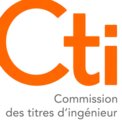A preparatory class that opens up your international character: joining the ESTIA trilingual engineering cycle, practising Spanish in a professional situation, mobility in Spain or Latin America.
At the end of the two-year international preparatory class, students enter the ESTIA trilingual engineering cycle on the basis of continuous assessment (without a competitive examination).
Follow a double degree course at a Spanish university and obtain a Master's degree in addition to the engineering qualification. ESTIA's prestigious partners in Spain include: Universidad del Pais Vasco, Mondragon Unibertsitatea, Universidad Politécnica de Madrid.
Enjoy a semester of academic mobility in a Spanish, Latin American or English-speaking university as part of the ESTIA engineering cycle.
Profile
To enter the ESTIA preparatory engineering course, International - Spanish option, students must meet two conditions:
- Demonstrate their interest in mathematics and physics by choosing at least one basic science speciality in their baccalauréat,
- Have a B1 to B2 level in Spanish.
Through the creation of this cycle, ESTIA is targeting students with an international profile: European Spanish class, LV1 Spanish, BachiBac class (double award of the French baccalauréat and the Spanish bachillerato), French lycées in Spanish-speaking countries, international students who speak fluent Spanish.
The preparatory cycle is accessible via the Puissance Alpha competitive entrance exam on Parcoursup for students in the general final year of secondary school who have taken 2 subjects in basic sciences and in the technological final years of secondary school (STI2D and STL).
Students in their final year of general education who have taken only 1 subject in the basic sciences will be admitted via their own entrance exam.
Candidates of foreign nationality will be admitted to the competitive entrance examination on the basis of their academic record.
Eligible profiles
the course is open to Spanish-speaking students
it takes place at ESTIA
the program is open to all students speaking Spanish
the application is realized in direct with ESTIA
el programa es Abierto a todos los alumnos quienes tienen una práctica del español
la matricula se hace directamente en la ESTIA
The ESTIA engineer
ESTIA trains trilingual general engineers, who are responsible for design and methods offices, production and major projects.
ESTIA trains them to master mechanics, electronics, energy and IT so that they can be operational in a wide range of sectors: aeronautics, automotive, electrical engineering, agri-food, capital goods and IT.




The ESTIA integrated preparatory cycle
focuses on the basic sciences, helping students to consolidate and extend their knowledge:
In advanced mathematics and computer and numerical solutions which will be useful for engineering training,
In the physical sciences, with particular emphasis on theories of mechanical behaviour, thermodynamics and electricity.
The course takes students through their first steps in their future careers as engineers.
In the practice of the Spanish language in professional situations.
30% of scientific and technical courses are taught in Spanish
Through the internationalisation of the curriculum, students spend training periods in foreign universities:
- One week in Spain in 1st year
- A semester in Spain or Latin America in the final semester
All pupils benefit from a scientific and technical preparatory period (the pst):
It puts all pupils on an equal footing in terms of what they have learnt at lycée, brings everyone's knowledge up to date, makes it easier for pupils to enter the world of higher and vocational education, clarifies the relationship between training, research and business, and enables each pupil to find his or her place in terms of learning objectives and skills.
A different kind of prep school!
Students are part of a group in which understanding and collaboration are encouraged: these concepts form the basis of the learning approach.
Competition is out of the question, but the acquisition and discovery of new knowledge is. To achieve this, new teaching methods are used, based on an approach aimed at developing the full potential of each individual through the group.
A number of other factors also help to ensure success:
- All teaching takes place on the ESTIA campus.
- Easy access to the ESTIA campus facilities when dealing with engineering sciences: fablab, technical platforms, project management,
- Proximity to companies on the ESTIA campus,
- The PST period, which facilitates the student's entry into the world of higher education and professional training, and during which the student will be monitored, reassured and acclimatised to this new context,
- Progression to the ESTIA engineering cycle by continuous assessment via continuous written and oral examinations, practical work, oral questioning, the technical project and a work placement in a company, in order to take regular stock of the knowledge and skills acquired; students who have completed the preparatory class with a major in international Spanish are given priority for :
- Follow a double degree programme with a Spanish university: at the end of their course, students obtain the ESTIA engineering degree and a Spanish master's degree
- Take part in a semester-long exchange programme during the engineering cycle at a Spanish, Latin American or English-speaking university.
Programme
The course is divided into 4 semesters:
- The first semester puts all students on an equal footing in terms of what they have learned in high school, brings everyone's knowledge up to date, makes it easier for students to enter the world of higher and vocational education, clarifies the relationship between education, research and business, and enables each student to find his or her place in terms of learning objectives and target skills,
- The following 3 semesters are structured around 5 teaching units:
Internationalisation
Development of students' international character :
The training is provided by teachers experienced in preparatory classes. ESTIA lecturers and researchers are involved in the professional modules.
Courses in basic sciences (physics, mathematics) and engineering sciences are taught on the ESTIA campus and on the technology platforms by teachers who are agrégés or PhDs.
Language courses: French and English complete the preparatory training.
Spanish forms the basis of the course. Students are taught by native speakers who are accustomed to using terms used in the professional world.
30% of the scientific and technical courses offered in Spanish are taught by teachers of Spanish or Latin American origin.
In the first year, students spend a month at a Spanish university. There they follow one of the courses on the curriculum. In the second year, the entire second semester is spent at a Spanish or Latin American university.
Students can join the ESTIA student office and take part in ESTIA's student, cultural and sports associations.
Students have an ESTIA student card: they are ESTIA students.
Accommodations for students with special needs.
ESTIA has set up a process dedicated to supporting students with special needs. This process is part of the ISO9001 quality approach for which ESTIA is certified
High-level sportsmen and women: the preparatory engineering course can be adapted, based on personalised support for the student.
Students with disabilities: students benefit from an inclusive training approach. They also have the support of a mentor throughout the course. Specific arrangements are made for examinations (continuous support, additional time, scribes, etc.).
Foreign students: Inclusive training encourages the integration of foreign students, who benefit from additional training in FLE (French as a Foreign Language) to consolidate their use of the language (a B2 level is required beforehand).
Rates
Students are eligible for higher education grants.
Each student is provided with a laptop computer with the necessary software.
Fees include additional costs related to internationalisation arrangements:
- courses taken at a partner university in Spain,
- Mobility costs covered
- Semester mobility in Spain or America,
- Courses taught in Spanish by scientific or professional experts


